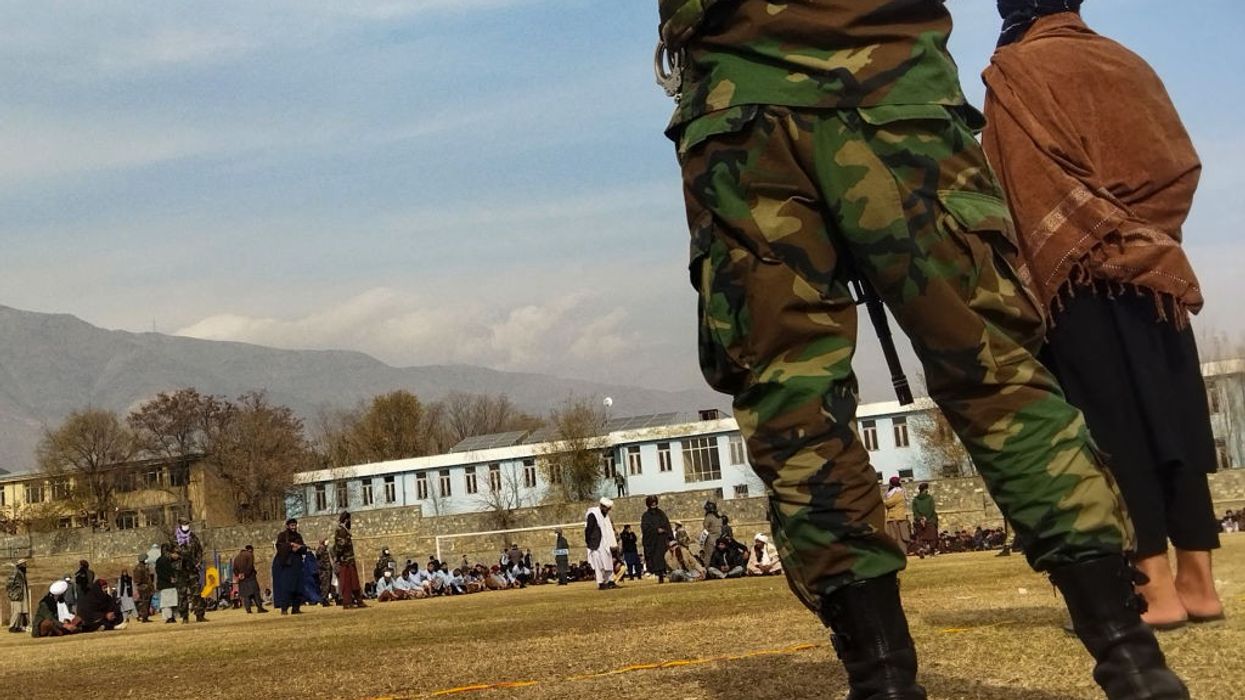Following criticism over the public execution of a man, the Taliban on Thursday defended its actions. The Taliban on Thursday termed the international criticism over its public execution "reprehensible" and "interference" in Afghanistan's internal matters, Voice of America (VOA) News reported.
Taliban spokesperson Zabihullah Mujahid in a statement said that their action was criticised due to a lack of information about Islam and Afghanistan. He stressed that 99 per cent of the people in Afghanistan are Muslim. Mujahid's statement comes after US and United Nations criticised the Taliban for the public execution of a man.
Zabihullah Mujahid said that they have made many sacrifices for enforcing Islamic laws in Afghanistan. Defending the public execution, Zabihullah Mujahid said that death penalties are "given all around the world," including America and Europe, as per the VOA News report.
"The fact that Afghanistan is being criticized for applying Islamic sentences shows that some countries and organizations have either insufficient knowledge or have problems with Islam, respecting Muslims' beliefs and laws," VOA News quoted Zabihullah Mujahid as saying.
"This action is an interference in the internal affairs of countries and is reprehensible," he added.
On Thursday, the Taliban Supreme Court announced the public flogging of 27 convicts, including nine women, in Parwan province. The decision of the Taliban Supreme Court comes a day after publicly executing a man charged with murder for the first time since they took over Afghanistan last year.
Taliban's spokesman Zabihullah Mujahid had confirmed the public execution of a man. Taliban spokesperson Zabihullah Mujahid said that the execution took place in a sports stadium in western Farah province on Wednesday, according to VOA News report. He said that hundreds of people witnessed the execution, including the top officials of the group, as per the VOA News report.
Zabihullah Mujahid said that the executed person was tried in the Taliban courts and subsequent appellate tribunals. He claimed that the executed person in the court had "confessed to stabbing to death" a resident of Farah and stealing his belongings, including a motorcycle. According to the spokesperson, the execution was carried out by the victim's father.
Office of the United Nations High Commissioner for Human Rights (OHCHR) spokesperson Jeremy Laurence in a statement said, "The death penalty is incompatible with fundamental tenets of human rights, and its use cannot be reconciled with full respect for the right to life." Lawrence called on the Taliban to create an immediate moratorium on any further executions, and act swiftly to ban the use of the death penalty.
The UN Assistance Mission in Afghanistan (UNAMA) echoed the message on social media. It tweeted, "Afghanistan's de facto authorities announced the public execution of a man in Farah province today. The UN strongly opposes the death penalty in all circumstances, and calls on de facto authorities to establish immediate moratorium with a view to abolishing the death penalty."
Meanwhile, the United States also criticised the Taliban after reports regarding public execution emerged. US State Department Spokesperson Ned Price said, "We've seen the reports that the Taliban has ordered judges to impose their interpretation of Sharia law. That includes public executions; it includes amputations; it includes floggings."
While addressing a press briefing, Ned Price said, "We've seen despicable videos that have circulated online in recent days regarding some of these tactics. This indicates to us that the Taliban seek to return to their regressive and abusive practices of the 1990s. It was an affront to the dignity and the human rights of all Afghans then; it would be an affront to the dignity and the human rights of all Afghans now."
(ANI)




